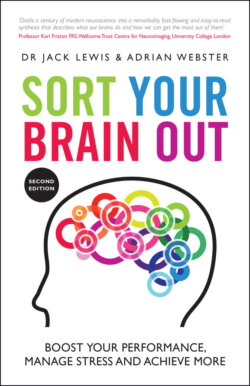Читать книгу Sort Your Brain Out - Джек Льюис, Адриан Вебстер - Страница 30
Staying in to play
ОглавлениеWith some people spending up to two months per year glued to it, a big concern for a long time was the amount of time people spent watching television. With the average household now having more screens in it than people, the latest worry is over the amount of time being devoted to computer games. With so many spending huge chunks of their lives participating, a major concern with video gaming has been that the violent nature of many titles might be leading to a new generation of morally corrupt individuals. It turns out that there is little evidence to support this.
In the case of both excessive TV watching and video game playing, the main problems revolve around displacement of time that could have been spent doing something more useful, such as socialising with friends face‐to‐face, rather than connected by microphones and headphones to enable fluid team coordination in the latest gaming craze to hit the “massively multiplayer online game” world.
A huge amount of valuable information is lost in any form of communication that doesn't do a good job of conveying a person's facial expressions and body language. This is this case when socialising through videoconferencing apps and video games, but also it also happens when socialising in person under circumstances where everyone spends most of the time looking down at screens instead of at each other's faces. Because body language is the raw material our brain circuits use to help us understand the emotions that other people are experiencing – circuitry that enables us to empathise with others – the concern is that these brain areas might not develop very well in the first place or might struggle to maintain these important interpersonal skills according to the principle of “use it or lose it.”
It's not all bad, though. There are actually several brain benefits to be had when gaming enthusiasts clock up many hours playing “first‐person” action video games (where you see through the eyes of a character as you shoot anything that moves). Brains adapt to the perceptual and cognitive demands of such virtual worlds, leading to unexpected, positive enhancements in several areas. Superior visual perception, visual short‐term memory, spatial cognition, mental rotation, multitasking and rapid decision‐making improvements have all been demonstrated, compared to an equivalent amount of video game play that doesn't involve running around shooting at fast‐moving objects.
